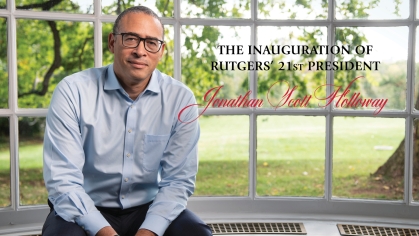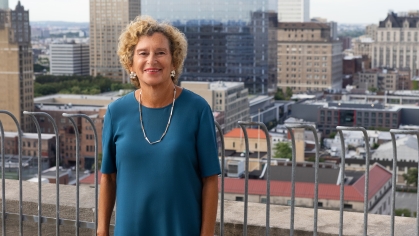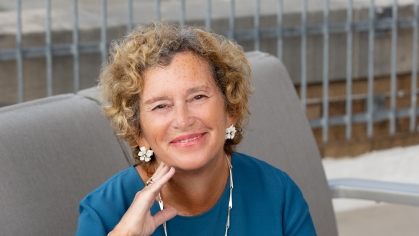Chancellor Cantor: Higher Ed Must Advance Diversity, Undo Systemic Racism
In a podcast for the Center for Diversity and Inclusion in Higher Education, Rutgers-Newark Chancellor Nancy Cantor condemned the false concept of color blindness that is central to the Supreme Court’s spring ruling against affirmative action.
She also insisted that higher education can, and should, be a force to dismantle systemic racism.
“This nation has never been colorblind, the world has never been colorblind,’’ she said. “There’s nothing colorblind about the way we’ve acted for centuries. It’s a dogma that gives validity in people’s minds to racism. Anti-racism is about systemic racism and not a just a few people who say stupid racist things.’’
Listen to the full podcast here.
The Center for Diversity and Inclusion in Higher Education is a national think tank, research center and policy consulting organization based at the University of Maryland. For a segment called “Thought Leaders Unplugged,’’ Cantor was invited to speak about the affirmative action case and universities as anchor institutions.
“She envisions them as more than centers of knowledge, she sees them as catalysts for equitable growth, beacons for racial justice, and champions of creative expression,’’ said podcast host Robert L. Worthington, the center’s executive director.
Research has shown that diversity creates better educational outcomes. Cantor added that, in addition to striving for diversity, institutions should acknowledge systemic racism and how it has manifested itself in higher education.
“It’s elitism and the pursuit of elitism, what we reward, what we think of as smart,’’ she said.
But colleges and universities can empower students and faculty to undo racism through self-awareness, classroom learning and publicly engaged research that works with community members and city governments to address local and global problems.
“We’re creating not only the next diverse generation of innovators and leaders who hopefully dismantle the systems of racism that have been so embedded,’’ she said. “We’re also creating a new generation of scholars to collaborate in community and with community. Not in a space we own or you own but space we collaborate in together.’’


